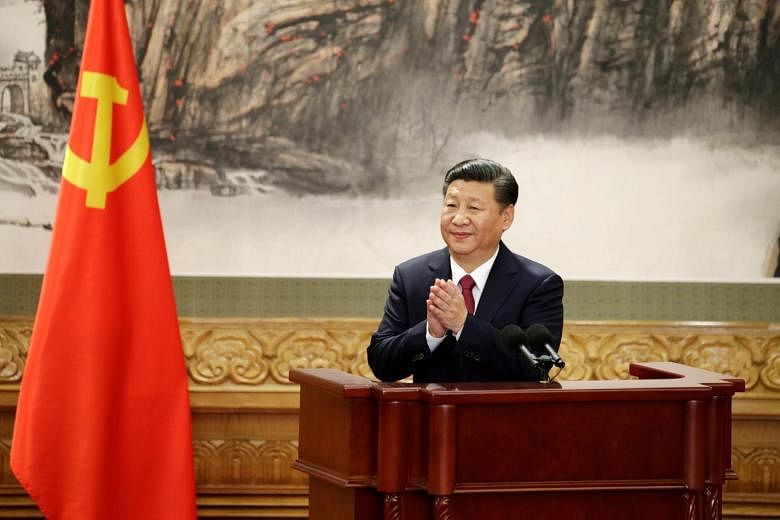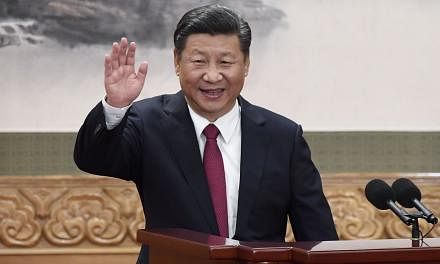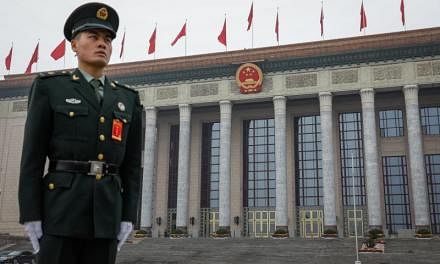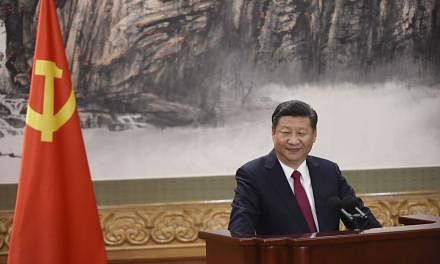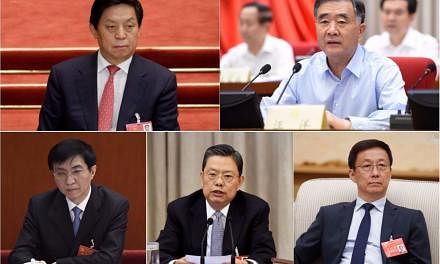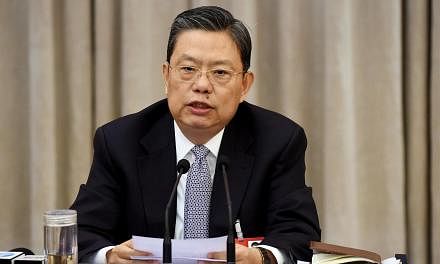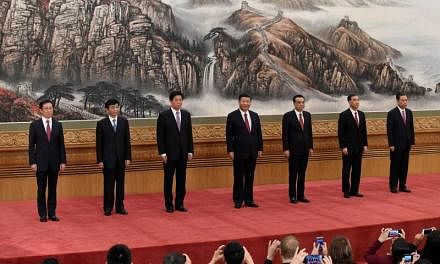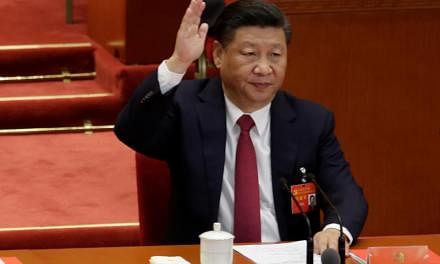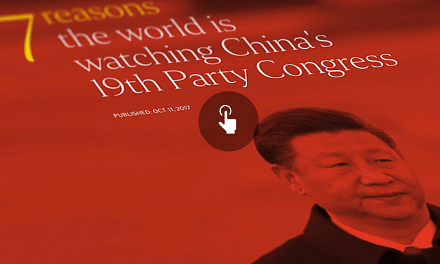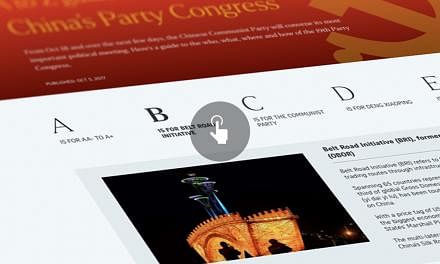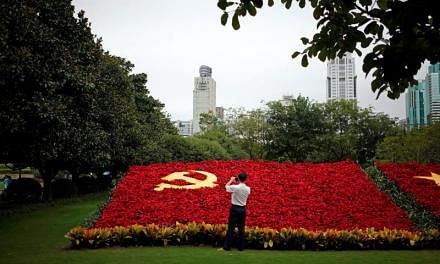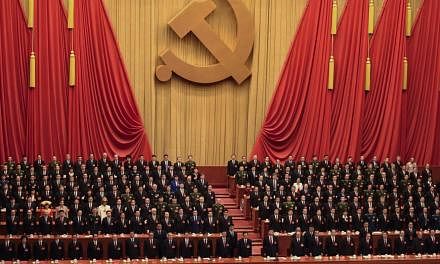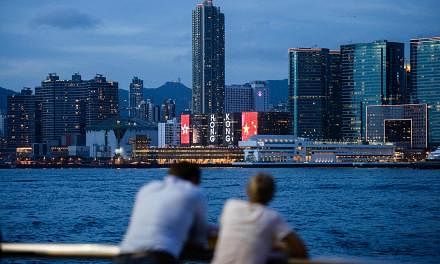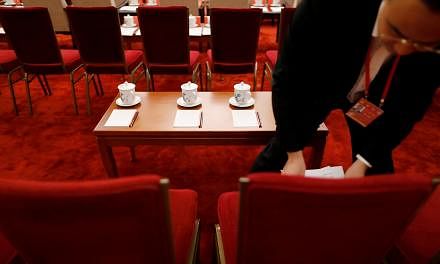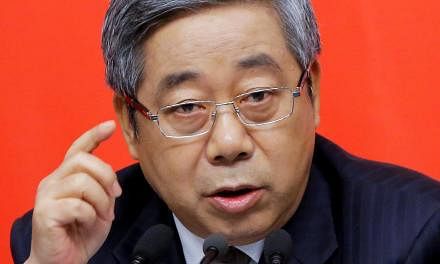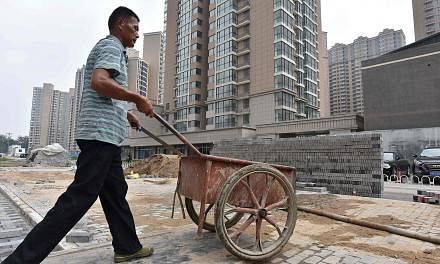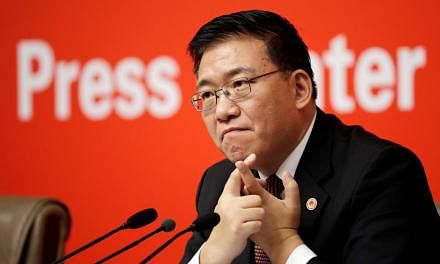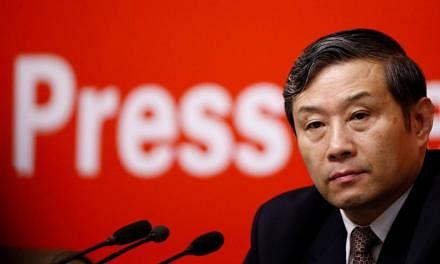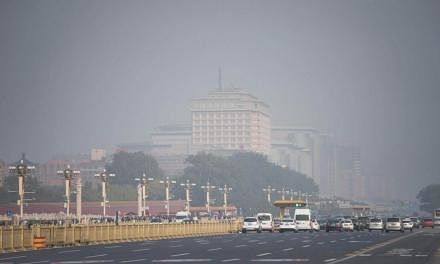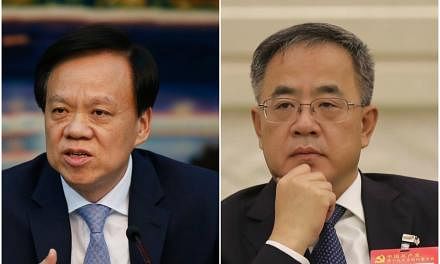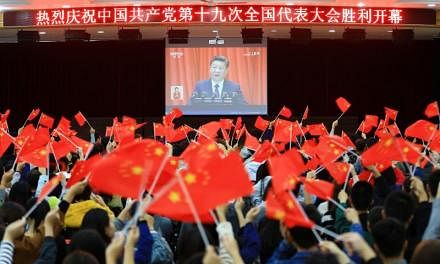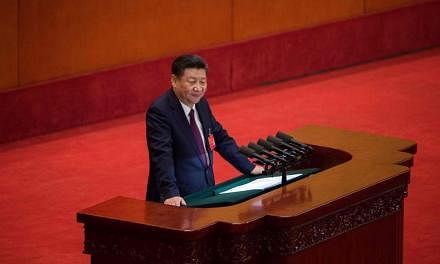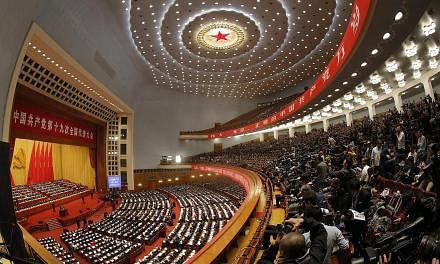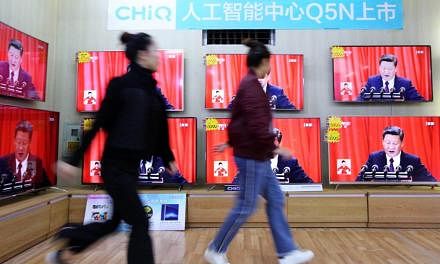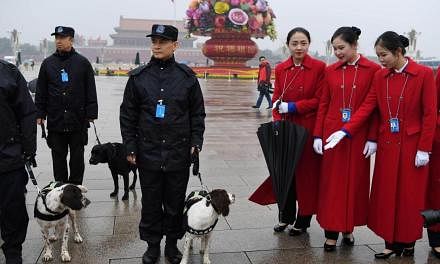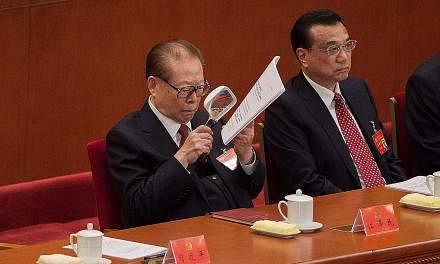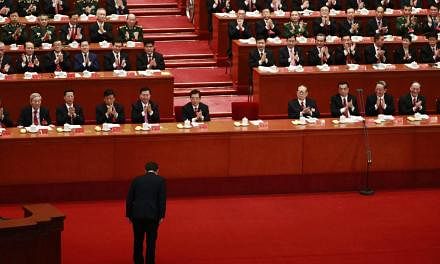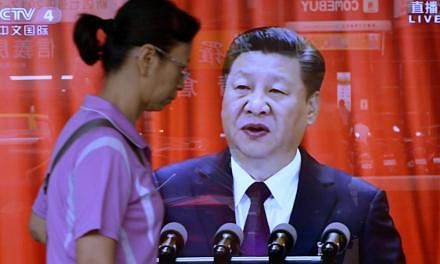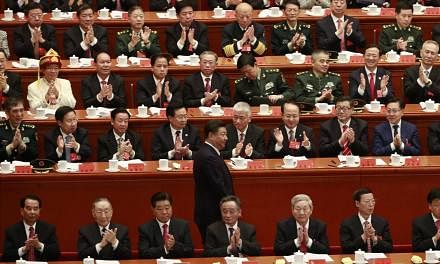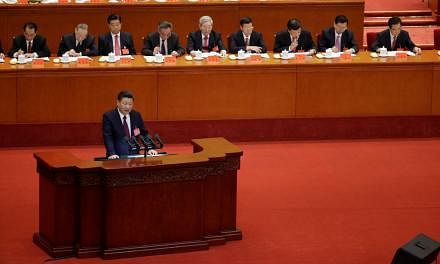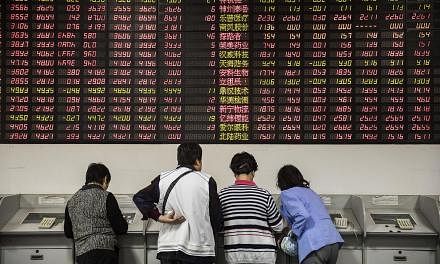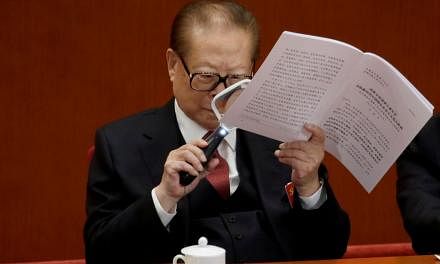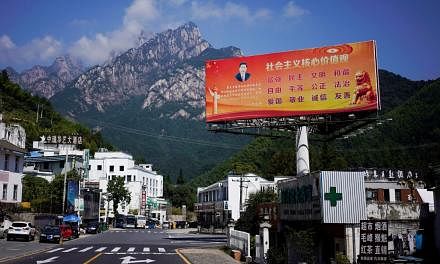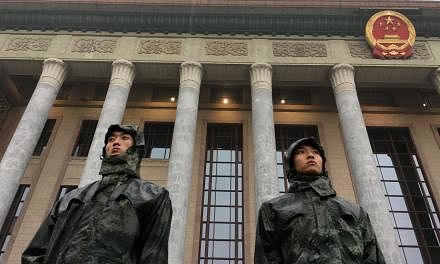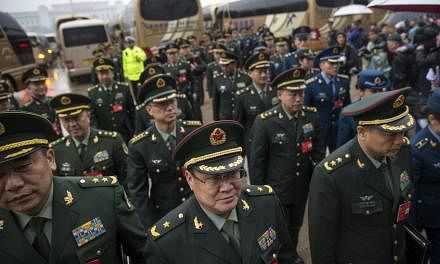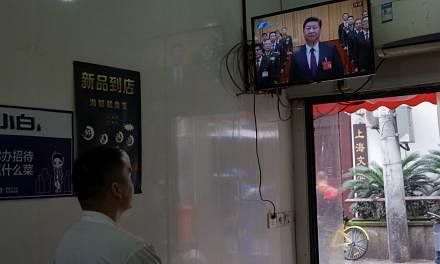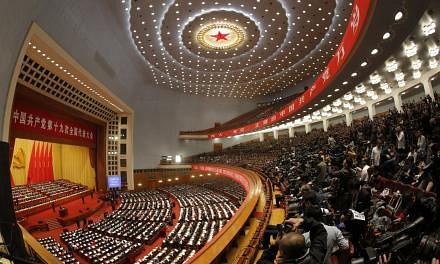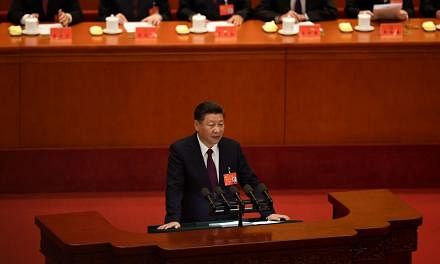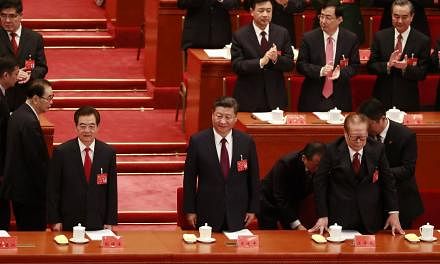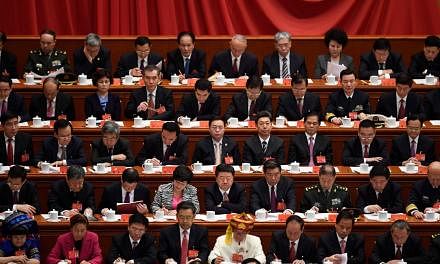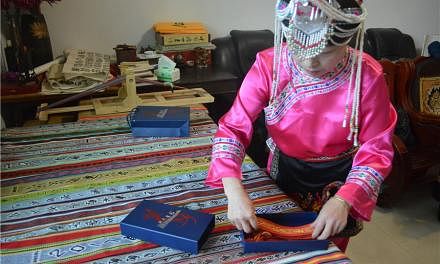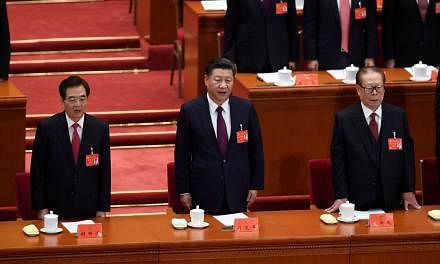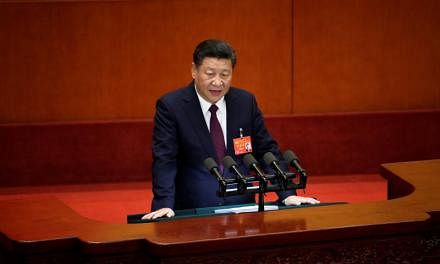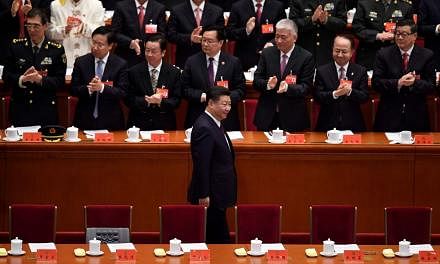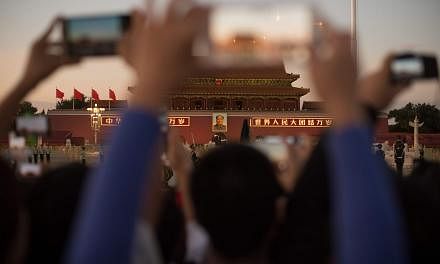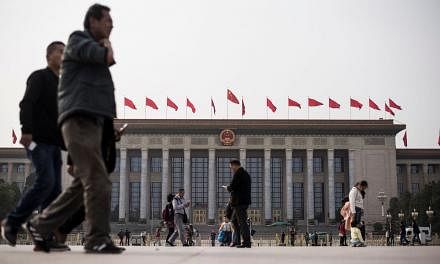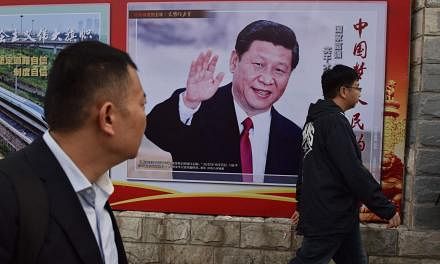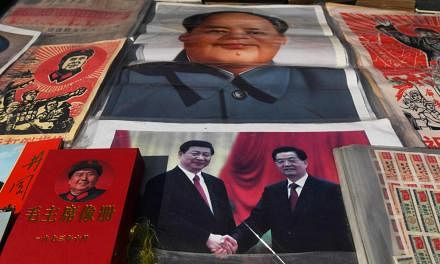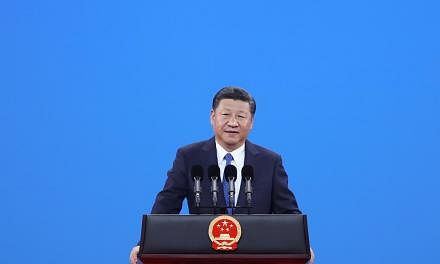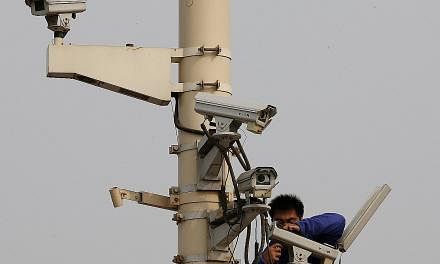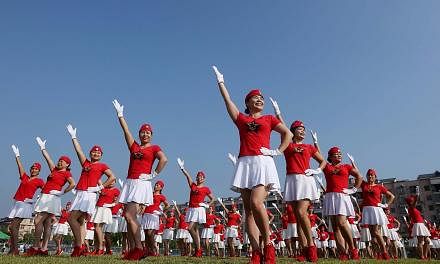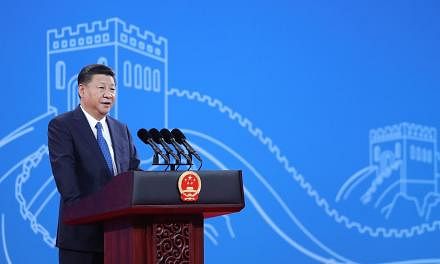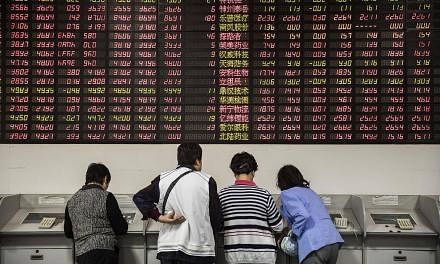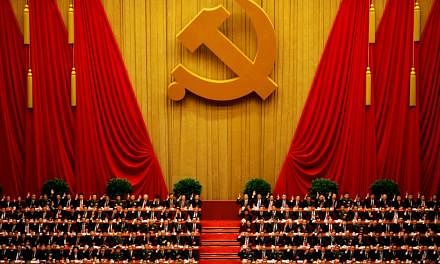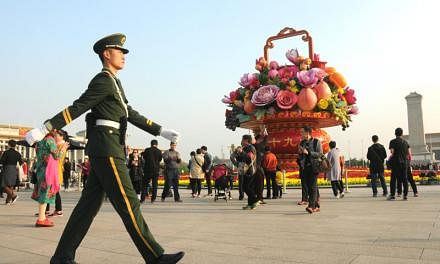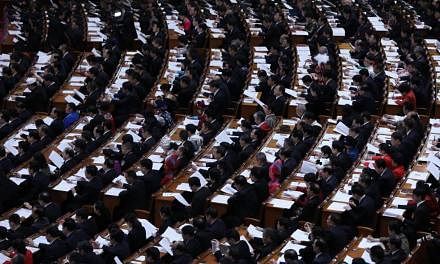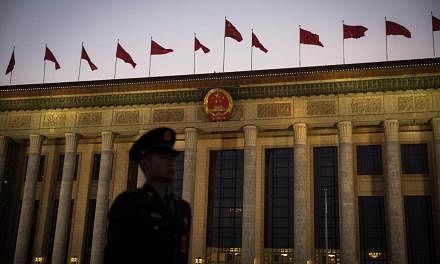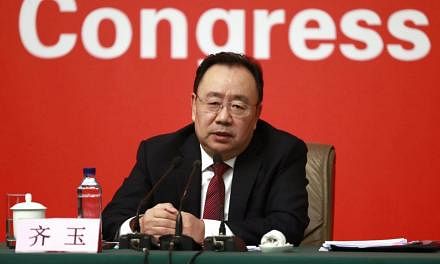BEIJING (NYTIMES) - President Xi Jinping of China has so many titles - more than a dozen and counting - that he has been called "chairman of everything".
He is president, general secretary of the Communist Party and chairman of the Central Military Commission, to name a few.
He leads working groups on issues as varied as Taiwan and internet security, and he has been hailed as the party's "core leader".
Mr Xi's multiple designations reflect his status as one of China's most influential modern leaders.
On Wednesday, he gained another five-year term as the party's general secretary and introduced a new leadership team with no clear successor, prompting speculation that he intends to rule beyond the customary second term.
What do all the titles mean? And why do they matter? Here's a guide.
Centre of the Party
Xi's most important title is general secretary, the most powerful position in the Chinese Communist Party. In China's one-party system, this ranking gives him virtually unchecked authority over the government. He has used his status as general secretary to wage a withering campaign against corruption, impose ideological conformity on schools and imprison scores of activists and dissidents.
But "general secretary" may not be enough for Xi, who regards himself as a figure on par with China's greatest leaders.
Some analysts have speculated that Xi may seek to resurrect the title of chairman of the Communist Party, a post that was retired in 1982 as the party sought to distance itself from Mao Zedong's personality cult.
Xi already holds the title "guojia zhuxi," which can be translated as "state chairman." Since 1982, though, the government has translated this into English as "president." Some critics say China adopted that translation to look more like other modern countries.
Military Control
Many of Xi's official positions relate to the military and national security, reflecting his ambition to strengthen his grip on a critical pillar of Communist Party power.
Xi, like his predecessors, is chairman of the Central Military Commission, which oversees the nation's armed forces.
He also leads several entities that he created, including the National Security Commission, which has broad powers over domestic and foreign policy, including counterespionage laws. He is also chairman of the Central Commission for Integrated Military and Civilian Development, a group that tries to break down barriers between military and civilian research and development.
Xi has sought new ways to demonstrate he is serious about building a modern military force that can rival those of other major countries, including the United States. Last year, he appeared in fatigues at China's joint battle command centre in Beijing to unveil yet another title: "commander in chief."
Driving Policy
In China's vast bureaucracy, Xi is omnipresent. He has created several so-called "leading groups," which he leads, to drive policy across a range of areas, including finance, cybersecurity and relations with Taiwan. Other agencies make decisions in these areas too, but the leading groups place Xi at the centre of policy-making.
"Xi obviously believes that the title 'general secretary' alone doesn't grant him sufficient power to push forward with his agenda," said Jude Blanchette, a researcher at the Conference Board, a nonprofit research group, who studies Chinese politics. "Adding new and authoritative-sounding titles indicates a level of legitimacy within the system."
'Core' Leader'
Chairman or not, Xi has made clear that he considers himself a transformational figure leading China and the party into a new era. The Communist Party has bowed to his wishes, last year naming him China's "core leader," a designation that places him on the same pedestal as Mao, Deng Xiaoping and Jiang Zemin. While the title did not come with any special powers, it sent a message that Xi was not to be challenged.
The adulations have continued. At the party congress that ended this week, officials trying to prove their devotion lavished praise on Xi, including by calling him "helmsman," a term that echoes Mao's famous nickname, the "Great Helmsman." In Xi's second term, the titles are likely to keep proliferating.
"The more powerful Xi becomes," Blanchette said, "the louder the hosannas from underlings become."
